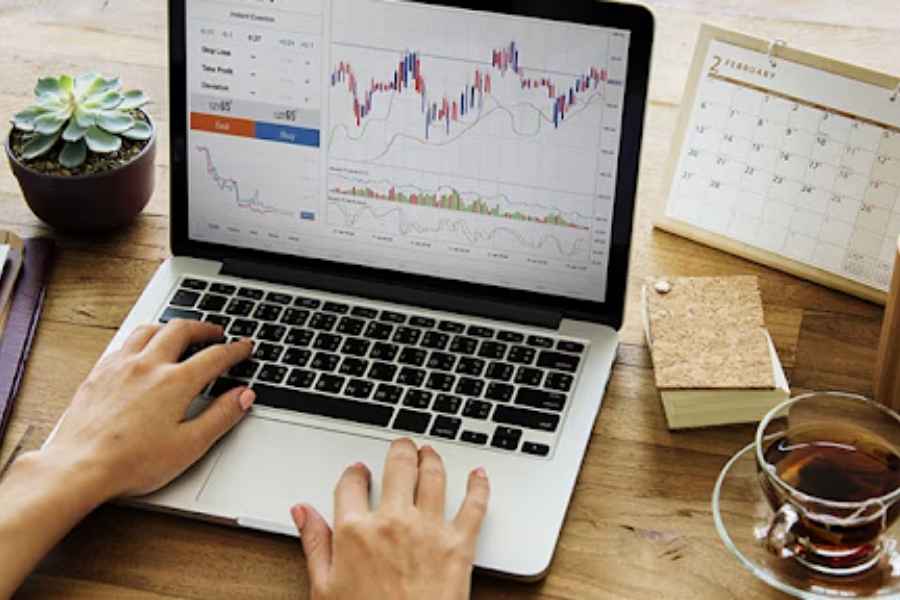If you’re new to investing, you may often hear terms like a Demat account and a Trading account. These two accounts are essential tools for anyone who wants to buy or sell shares in the stock market. One is used to store your shares, and the other is used to buy and sell them. Just like you need a bank account to manage money, you need these two accounts to manage stocks. In this guide, we’ll explain the difference between Demat and Trading accounts.
What Is a Demat Account?
Demat is short for Dematerialised. A Demat account is a repository that stores your shares and other investments safely in an electronic form. Earlier, shares were given as paper certificates. But now, everything is digital, and that’s where the Demat account helps.
You can use a Demat account to hold:
- Shares (stocks)
- Mutual funds
- Bonds
- Exchange-Traded Funds (ETFs)
- Government securities
When you purchase shares from your trading account, they are held in your Demat account. It’s similar to purchasing ornaments and keeping them securely in your bank locker; your Demat account is that locker for stocks. If you want to begin, reliable platforms like Findoc allow you to open a Demat account online without any fees.
What Is a Trading Account?
A Trading account is used to buy and sell shares in the stock market. Without this, you cannot place any order. It serves as a bridge between your Demat account and your bank account.
Here’s how it works:
- You use your trading account to place a buy order.
- Money is withheld from your account.
- Shares are credited into your Demat account.
- If you sell shares, the opposite happens: shares go out of your Demat account, and money is added to your bank.
You can also access various markets like:
- National Stock Exchange (NSE)
- Bombay Stock Exchange (BSE)
- Multi-Commodity Exchange (MCX)
Key Differences Between Demat and Trading Accounts
| Feature | Demat Account | Trading Account |
| Purpose | Stores your shares electronically | Used for buying and selling shares |
| Use | Like a savings locker for investments | Like a current account for transactions |
| Required For | Holding shares, bonds, and mutual funds | Placing buy and sell orders in the market |
| Transaction Role | Only stores shares; no buying/selling | Facilitates buying/selling of stocks |
| Linked To | Trading account and bank account | Demat account and bank account |
| Example Use | Storing IPO shares, mutual funds | Buying shares in the market |
Can You Open One Account Without the Other?
- Only Demat Account: Yes, you can open a demat account alone if you only want to invest in mutual funds, bonds, or apply for Initial Public Offerings (IPOs). You won’t need a trading account unless you want to buy or sell shares actively.
- Only Trading Account: You can trade in things like Futures and Options (F&O) or currencies without a Demat account. But if you want to trade in stocks (shares), a Demat account is a must.
Let’s say you want to buy 10 shares of a company:
- You log into your trading account and place a purchase order.
- Your bank account sends the money.
- After successful completion of the transaction, the shares get credited into your Demat account.
- After a while, if you wish to sell the shares, the same thing occurs in reverse.
This is how the three accounts, which are bank, trading, and Demat, operate together to assist you in investing without any inconvenience.
Fees and Charges to Know
When you open a Demat or trading account, some basic charges may apply:
| Type of Charge | Demat Account | Trading Account |
| Account Opening Fee | Some brokers offer free accounts; others charge | Usually free or very low |
| Annual Maintenance | Charged yearly, around ₹200–₹1,000 | Usually not applicable |
| Transaction Charges | Charged when you sell from a Demat account | Charged per buy/sell order |
| Brokerage Fee | No brokerage to hold shares | Charged when you trade (buy/sell) |
| Transfer Charges | For moving shares between Demat accounts | Not applicable |
Before opening your accounts, ask your broker for a full list of charges so there are no surprises.
Why Do First-Time Investors Need Both?
As a beginner, having both a Demat and trading account gives you the full ability to:
- Buy and sell stocks
- Hold them for short or long term
- Apply for IPOs
- Diversify into mutual funds, bonds, and more
You can easily open these accounts online. The process is paperless and takes only a few minutes if you have your PAN card, Aadhaar, and bank details ready.
Conclusion
If you’re just starting your investment journey, knowing the difference between a Demat and a Trading account is the first step. A Demat account helps you store your shares safely, while a trading account helps you buy and sell them in the market. Always read the fees and check your needs before you open these accounts.




